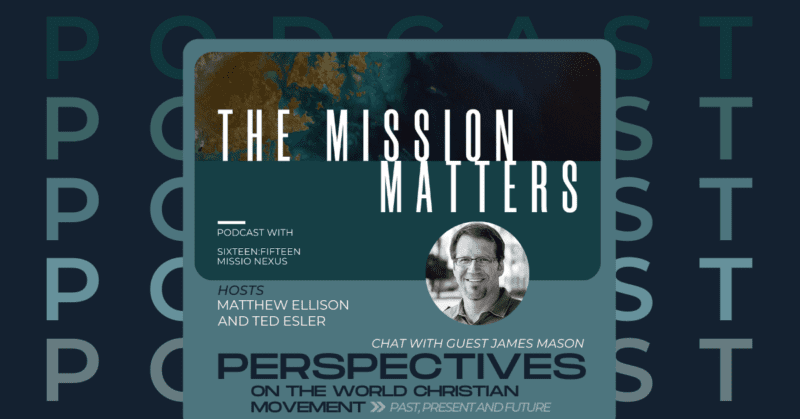Why ask questions when you already know all the answers?
Pete had his theology right. He had trained many years for the ministry he was now a part of. He had a great feel for the people he was ministering to. He was effective. Everything was going great. There were no big issues. It was full speed ahead.
Pete’s director came in for a visit. After all the formalities were over, Pete showed his director the ministry’s progress. The results were impressive and the Director seemed pleased. At dinner the Director asked Pete what his three or four biggest questions were about his life and ministry. Pete was puzzled. He really didn’t have any big questions other than about administrative matters like his budget and next assignment. He knew what he believed, what he was to do and how to do it. Why ask a lot of questions when you already knew the important answers?
Pete silently reflected that he was a positive guy, not a doubter or skeptic. He was called to declare, affirm and act, not ask questions. The Director explained that it was what Pete didn’t know, the negative spaces in his world that would make up his biggest future challenges, or lost opportunities. These negative spaces would only become visible through the process altering his vantage point and asking good questions. Yesterday’s answers must be constantly probed by new and better questions that extract today’s meaning.
Pete’s director opined that good productive questions would always surface out of Pete’s values, aspirations and commitments. Good questions always originate from a specific starting point. They are an expression of a desire or aspiration. Furthermore, questioning can never be checked off as a completed task. “We never possess the full truth we are attempting to live out,” admonished the Director. Pete was more than a little unsettled by the direction of the conversation.
I understand Pete. When I was younger I was a “doer,” not a “thinker.” I was frantically working to live out what I already knew. I had no time for more questions. Questions only complicated things and were just not a part of my “positive” lifestyle.
What started me thinking about “questions” was an article that I read recently. The author declared that research basically serves to give a scientist the ability to ask new and better questions. That new idea was jarring because I always simplistically thought that scientific research was merely to produce answers. It turns out that answers are by products of the process of acquiring knowledge derived from asking research questions.
The Bible says God desires from me faith. I want concrete certainty. They aren’t always the same. Even today my quest seems to be for the kind of certainty that gives one control, not requires faith. The Bible asks a lot of questions that make us uncomfortable. Good questions always set up tensions in our minds. I never appreciated that discomfort.
Brain scientists tell us our minds don’t like tension. Questions bring into play the thinking part of our brains and tend to sideline the reactionary circuits. It is much easier to be reactionary and let our brain’s automatic responses take over. This auto-response mode is our brains “default” setting. It is the old “fight” or “flight” response on a higher level. Those automatic responses are essential when crisis hits us. They can also get us into big trouble longer term. Good questions cause us to pause and really think, not merely react.
Questions about the great God we serve and how we can know Him better are important. What is His desire for the world and our specific community? Who am I today and how is God shaping the future “me?” A natural sequence for questions seems to be: what, how, and why. What does God desire? How can it come about? Why is it really important? As we ask important questions, we begin to refine our field of vision and define our sphere of obedience.
A big question about all our responses is: how do I know that the answers to my questions are on target? Is it merely a feeling, a guess? Is my response based on Scripture, on fact, or fantasy? This fundamental question helps make our assumptions observable so that we can examine them. The confidence of faith is a product of thoughtful questioning.
The responses to relevant questions provide the mile markers for life and ministry. Like headlights reaching down a dark road, each question lets us see a little farther ahead but never the whole panorama. As we gain understanding, we can ask better questions. When we think we have all the answers, we are in big trouble. Being a life-long learner doesn’t mean we get the definitive answers to all our queries but does enable us to ask better questions that increase our knowledge of the road. In this way our obedience to the Master and the stewardship of our gifts can become more finely honed.
Don’t be a Pete (or a Paul). Ask good questions as part of your lifestyle, not merely a technique to be pulled out when times get tough. Remember when questioning, greater obedience to the Holy Spirit, not mere knowledge, should be the outcome. Questions should be a never ending process of exploring God’s grace and His will for your life and ministry.
If you would like to read more on this topic, the Book, The End of Our Exploring by Mathew Lee Anderson would be a good place to start. I got my copy on Amazon.com.
Your friend and fellow pilgrim. … Paul






Responses